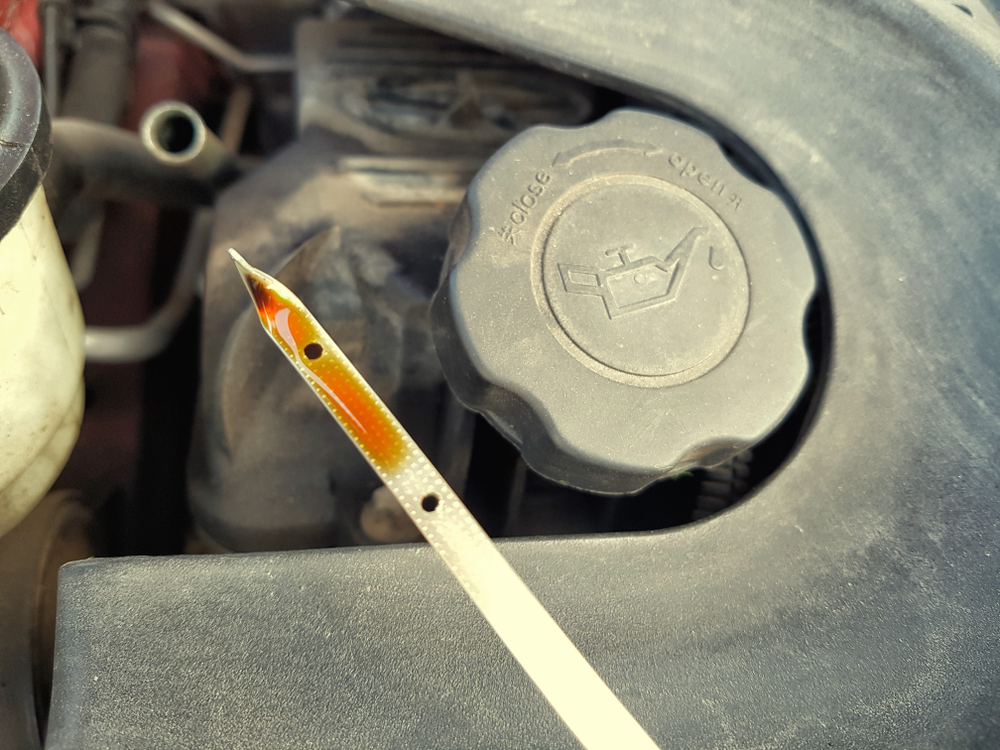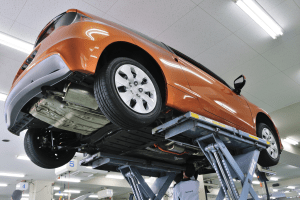Unless you come from a mechanical background, it can be daunting to look under the hood of your car maintenance for the first time.
Happily, you do not have to be a mechanic in order to perform several basic tests that help to monitor your car’s performance and car maintenance.
Here are some of the top 10 car maintenance tips for new car owners:
1. Check your tire pressure.
Yes, your car maintenance includes spare tires!
Properly filled tires will not only increase the miles per gallon you are able to achieve on a tank of gas.
But also keeps your tires in better overall shape by reducing undue wear.
Replacing your tires can be an expensive endeavor, from $50-$200.
Checking your tire pressure regularly keeps the tires you’ve got in their best shape until the day you trade them in for new ones.
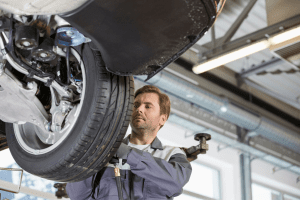
2. Replace spent windshield wipers.
Windshield wipers simply not performing like they used to?
It may be time to swap them out for a fresh pair.
This not only improves safety but also improves the experience of driving in the rain for better driving enjoyment.
For added bonus, add a rain-resistant layer to your windshield after cleaning it so water beads away.
A bottle of rain-resistant glass treatment can go for as little as $7.50!
3. Test front, back, interior, and hazard lights.
This 5-minute check is something you can easily accomplish daily with the help of a buddy.
Don’t forget to check turn signals, reverse lights, brakes, and interior lights for a thorough job.
Ensuring your car lights are working properly not only protects you from getting fined or pulled over.
But it also increases your safety for driving in inclement weather or in dark hours of the morning or evening.
Checking your hazard lights in particular is a simple, fast test that can potentially protect you should you end up on the side of the road.
And you don’t even need another person to do it!
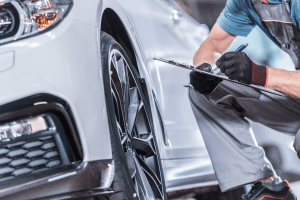
4. Check the motor oil level/change the oil.
Motor oil is the lifeblood of your engine.
It is a key part of the force that ensures your engine will run properly without seizing or overheating.
As such, it’s important to monitor your motor oil levels to ensure you do not have any engine leaks.
Or that you aren’t burning oil, particularly if you have an older car.
It’s recommended that you change your motor oil every 3,000-5,000 miles.
But some synthetic motor oils like that of Amsoil can last you even longer than that.
For more information on how to check your motor oil levels, check out our recent article on the topic!
(If you aren’t sure how to change your car’s oil, take it to the appropriate dealership near you for a quality oil change.)
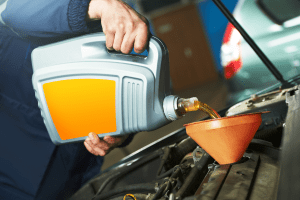
5. Check other car fluids.
This includes coolant, power steering fluid, windshield wiper fluid, brake fluid, and transmission fluid!
If any of these fluids appear discolored or milky, it is likely that you have a leak somewhere.
So call your local mechanic to see if you need to have your car towed or if you can drive to their shop without damaging your engine.
If your fluids are not discolored, simply top them off as needed by purchasing the corresponding fluids at your local auto parts store!
Some of these fluids, like windshield wiper fluid, can commonly be found at gas stations as well.
6. Keep battery terminals clean.
Caring for your car maintenance is important.
Car batteries are naturally corrosive and tend to accumulate corrosive buildup at the terminals.
This corrosive material will sometimes prevent your battery from working properly, which may leave you high and dry.
This can easily be cleaned by loosening the terminals and cleaning them with sandpaper.
Or a cheap wire brush; this simple step saves you a lot of headaches and takes under 10 minutes to do right!
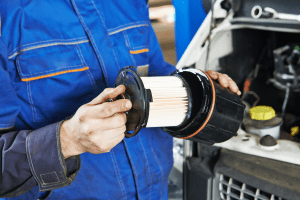
7. Check your air filter.
Especially if you live in an arid, dusty place, it’s crucial to regularly check your engine’s air filter.
By replacing spent filters, you will keep your miles per gallon higher while eliminating undue ignition problems and other issues.
8. Have your brakes inspected.
It’s true that even the best brake pads wear out over time.
So regular brake pad inspections are a key part of driver safety and vehicle longevity. Ideally, this should happen once every six months.
Or so to ensure everything’s in optimal condition.
While it may seem like an added headache to bring your vehicle into a shop to have the brakes checked, the whole process can take 30 minutes or less.
Though any necessary repairs will take longer.
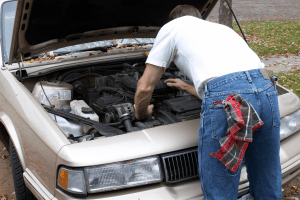
9. Have your tires rotated.
Did you know that all four of the tires on your vehicle wear in different ways?
What this means is that by regularly rotating your four tires, you will be able to even out wear which protects all four tires from blowouts.
This should be done every 3,000-5,000 miles, which is why many people opt to have their tires rotated and their oil changed at the same time!
10. Check engine spark plugs.
Chances are you’ve heard of a spark plug; this essential piece of your vehicle’s motor provides the spark necessary for the combustion required to move your car down the road.
Spark plug problems can lead to major engine failure down the road if left unchecked.
But the good news is, for $30 or less every 30,000 miles, you can avoid any spark plug-related issues!
Replacing your spark plugs regularly can save thousands of dollars in accumulated engine damage.
And is easy enough that a beginner with a toolbox can do it themselves!

